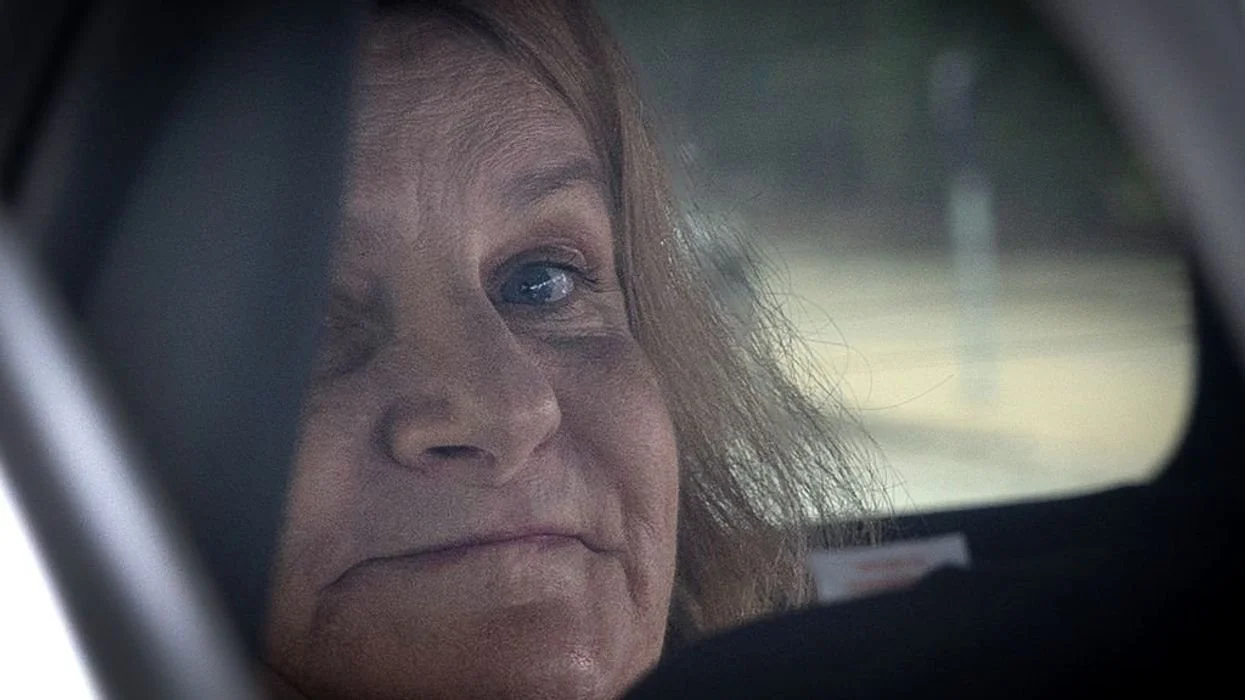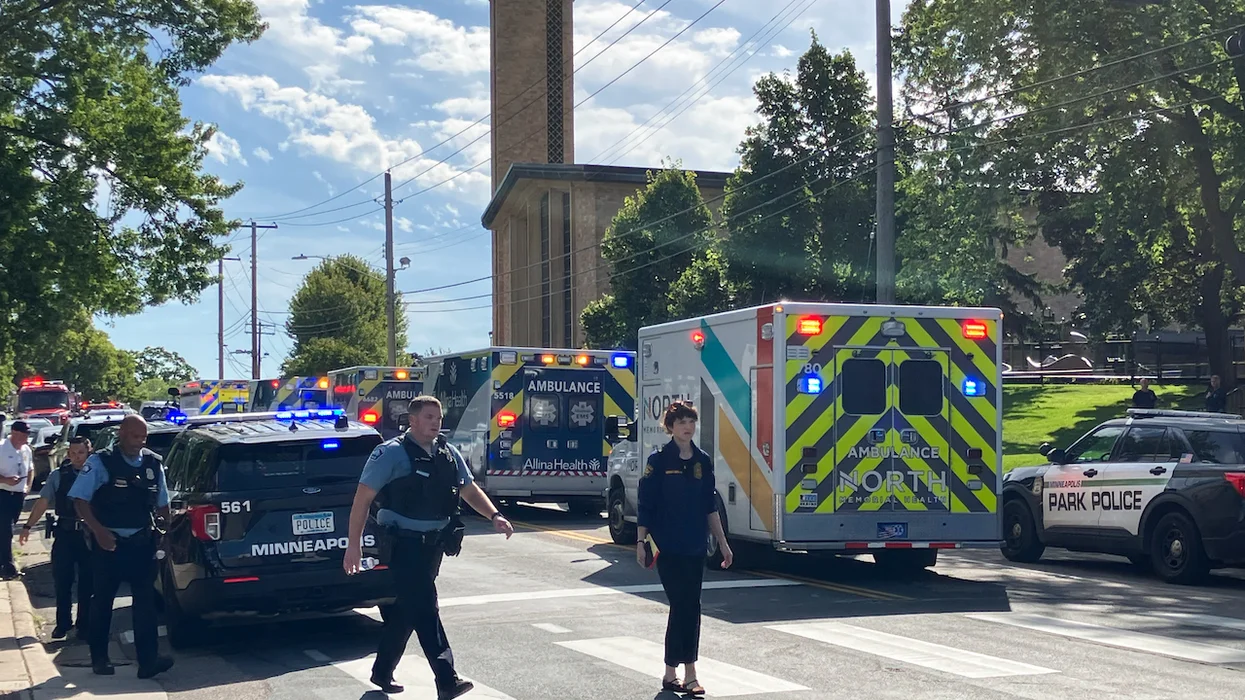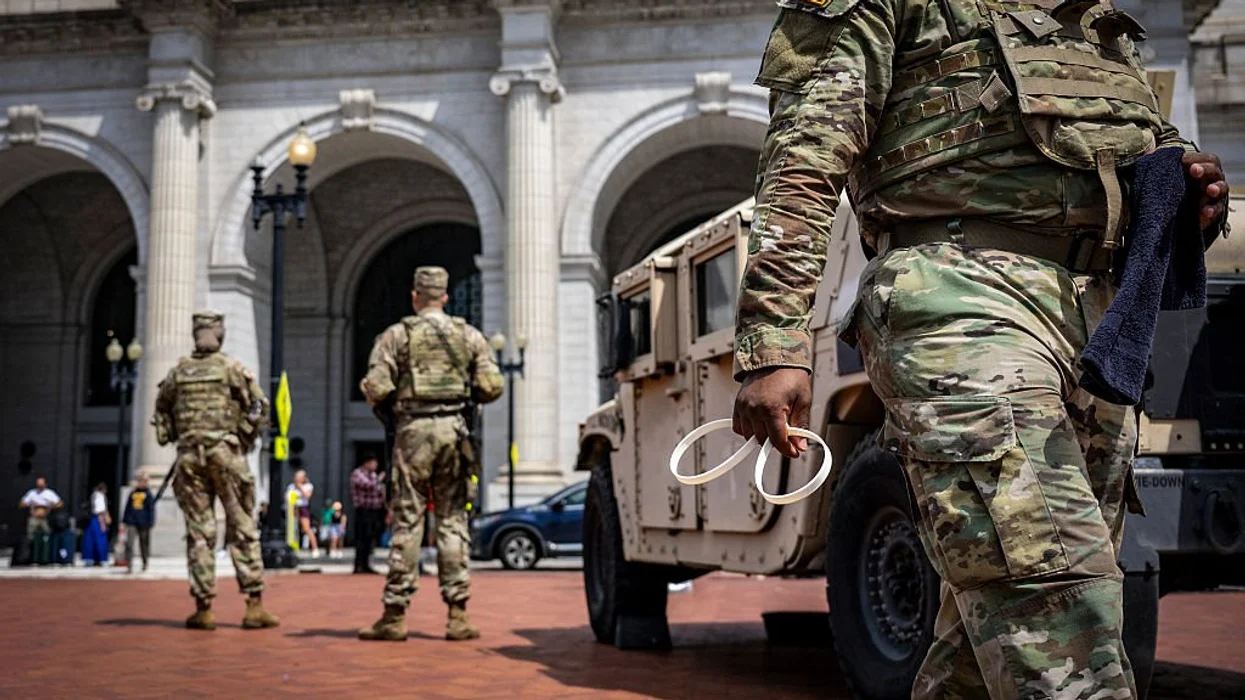Story by the Associated Press/Curated by Erica Ritz
--
CAIRO (AP) — People living on Badr el-Din street say they found the two young men dumped in a pile of rubbish by a park on July 27. Amr Mohammed Salim, 22, a street vendor, was dead, hands bound and body covered with gashes, residents said. Hany Moussa, a 24-year-old kitchen helper, was still alive, but barely.
They were found just three blocks from where followers of Egypt's ousted President Mohammed Morsi are camped in protest at the new military-backed government, and what happened to them is a mystery that ties in with the tumultuous events and fierce recriminations that have engulfed Egypt over the past five weeks.
Egyptian authorities and the media say that nearly a dozen bodies have been discovered close to Cairo's two mass sit-ins for Morsi, saying protesters killed them. The London-based Amnesty International says it has collected eyewitness testimony of Morsi supporters torturing members of rival groups. Other rights activists say the allegations fall into a pattern of abuse by protesters of bystanders suspected to be police spies.
 An Egyptian man gets his hair done at a makeshift barber shop nearby a sit-in by members of Egypt's Muslim Brotherhood and supporters of ousted president Mohammed Morsi outside Cairo's Rabaa al-Adawiya mosque on August 7, 2013. (Photo:AFP/Getty Images)
An Egyptian man gets his hair done at a makeshift barber shop nearby a sit-in by members of Egypt's Muslim Brotherhood and supporters of ousted president Mohammed Morsi outside Cairo's Rabaa al-Adawiya mosque on August 7, 2013. (Photo:AFP/Getty Images)
But Islamist participants in the sit-ins deny that they have tortured anyone, and, unlike many of the more notorious incidents of violence that have occurred throughout over two years of political turmoil in Egypt, potentially deadly attacks by sit-in participants on bystanders have not been caught on video and circulated.
Meanwhile, the allegations have often gotten lost amid a tide of less credible media accusations against the demonstrators — for example, that they are non-Egyptian Islamists, or children recruited from orphanages. These lead many to suspect that the torture claims might be propaganda as well.
The bodies and the torture allegations fuel demands from Egyptians opposed to Morsi — a large majority, at least in Cairo — that the security forces move quickly to break up the sit-ins. But international pressure has mounted on Egypt's government to avoid a repetition of the July 26 clashes in which over 80 protesters were killed by the security forces, and diplomats including U.S. Deputy Secretary of State William Burns are trying to mediate a solution.
If the mediation fails, the notion that Islamists are torturing citizens in two lawless enclaves in Cairo will pressure the government to use force and risk another bloodbath.
 Supporters of Egypt's ousted President Mohammed Morsi chant slogans and hold his posters with Arabic writing reading " Yes for legality, No for the coup" during a protest outside Rabaah al-Adawiya mosque in Cairo, Egypt, Tuesday, Aug. 6, 2013. (Photo: AP)
Supporters of Egypt's ousted President Mohammed Morsi chant slogans and hold his posters with Arabic writing reading " Yes for legality, No for the coup" during a protest outside Rabaah al-Adawiya mosque in Cairo, Egypt, Tuesday, Aug. 6, 2013. (Photo: AP)
On Badr el-Din street, witnesses refused to give their names because they did not want to get caught up in the conflict. But Hany Moussa's identity was confirmed by his brother Mohammed, who picked up his injured brother. Now, Mohammed says, the young man is lying in a Nile Delta hospital with internal bleeding and 45 stitches in his head.
"He's fighting for his life," Mohammed said, and most of the time "he doesn't even recognize his father or mother." But he says that his brother has had moments of consciousness during which he has spoken about three bearded men who beat him with sticks and iron bars, leading his brother to blame the Muslim Brotherhood.
Hany Moussa was found just after the July 26 clashes near the sit-in in front of east Cairo's Rabaah al-Adawiya mosque. He worked at a nearby military-owned hotel, and would just have finished his shift when he was attacked.
This fits a pattern in the allegations. Many of the victims appear to have been seized after clashes, either because they were from an anti-Morsi group or because they were mistaken for police auxiliaries.
Media reports and testimony suggest others were street vendors who flock to the sit-ins to sell their wares. Protesters have long believed that some of these vendors are police spies.
 A young Egyptian street vendor sells national flags and masks of deposed president Mohamed Morsi outside Rabaa al-Adawiya mosque in Cairo on August 4, 2013. (Photo: AFP/Getty Images)
A young Egyptian street vendor sells national flags and masks of deposed president Mohamed Morsi outside Rabaa al-Adawiya mosque in Cairo on August 4, 2013. (Photo: AFP/Getty Images)
The almost festive atmosphere at the sit-ins, where families gather to break the dawn-to-dusk Ramadan fast and young men cheerfully proclaim their willingness to die for the cause, makes it hard to imagine the abuses alleged to be occurring here. But sometimes a flare-up offers a glimpse of the tensions under the surface.
At the Rabaah sit-in on Monday, Saadiya Hasan Amin tearfully shoved away food offered to her by sit-in participants so she could break her fast. Instead, she demanded that they tell her what had become of her son Mohammed, who went to the protest that morning to sell water and never came home.
"He was a thug," interrupted one member of the sit-in's orange-vested security team, using an Arabic word also applied to petty criminals in the pay of the police. The sit-in security says he smoked drugs in front of demonstrators at prayer, and was ejected from the sit-in.
The sit-in participants deny the abuse allegations, pointing out that they themselves were victims of torture by the security forces before Egypt's 2011 uprising. They say some of the bodies may have been dumped by the police — who rights groups say routinely torture and sometimes kill political opponents and criminal suspects alike.
"That talk is lies, we refuse torture. We ourselves were tortured," said Abdel Majid Barakat, an official on the Rabaah sit-in's committee of safety and organization.
 Egyptian women display a pro-Morsi slogan made of pastry to be used for Eid al-Fitr cookies as supporters of ousted president Mohammed Morsi take part in a sit-in outside Cairo's Rabaa al-Adawiya mosque on August 7, 2013. (Photo: AFP/Getty Images)
Egyptian women display a pro-Morsi slogan made of pastry to be used for Eid al-Fitr cookies as supporters of ousted president Mohammed Morsi take part in a sit-in outside Cairo's Rabaa al-Adawiya mosque on August 7, 2013. (Photo: AFP/Getty Images)
Sit-in organizers invite journalists to go wherever they want in the camps. But the encampments sprawl over streets, gardens, and residential areas with many hidden corners. Some local media accounts suggest that jihadist-leaning youth, more radical than the Brotherhood, take charge of security and may be responsible for much of the abuse.
Meanwhile, rights groups say the evidence of torture is strong.
"It is established that there are some deaths as a result of the detentions," says Heba Morayef of the New York-based Human Rights Watch. She says they fit a pattern over the past two years in which protesters, especially during the tensest demonstrations, have detained and often abused suspected spies.
Egypt's street protests have long been accompanied by violence. Mobs have attacked both pro- and anti-Morsi marches, sometimes with firearms. Dozens of people on both sides have been killed in such clashes in the last year alone.
 Egyptian supporters of deposed president Mohamed Morsi shout anti-government slogans and wave their national flag during a demonstration following Friday prayers in Cairo on July 26, 2013, as Morsi supporters continue to hold a sit in outside Rabaa al-Adawiya mosque. (Photo: AFP/Getty Images)
Egyptian supporters of deposed president Mohamed Morsi shout anti-government slogans and wave their national flag during a demonstration following Friday prayers in Cairo on July 26, 2013, as Morsi supporters continue to hold a sit in outside Rabaa al-Adawiya mosque. (Photo: AFP/Getty Images)
Protesters have seized suspected police infiltrators since the early days of the 2011 uprising, when demonstrators detained dozens in Tahrir Square's subway station. The more graphic accusations of torture however are more recent, mostly since the July 3 coup, and have mostly been directed against Islamists.
According to the Amnesty report, Mastour Mohamed Sayed, 21, said he was attacked by a group of Morsi supporters near the Rabaah al-Adawiya on July 5, early in the standoff. He said he was driven to the sit-in, held under a podium, beaten with bars, and given electric shocks.
Hassan Sabry, 20, said he was dragged by armed assailants into a park adjoining a second sit-in at Cairo University. He says he was handcuffed with plastic wires, and beaten with sticks. He told Amnesty he saw one protester have his throat slit and another being stabbed to death.
"These are unprecedented levels of violence ... also not terribly surprising given the extreme levels of tension and paranoia," Morayef says.
The Agence France-Presse takes viewers inside one of the pro-Morsi sit-ins:
[related]

 An Egyptian man gets his hair done at a makeshift barber shop nearby a sit-in by members of Egypt's Muslim Brotherhood and supporters of ousted president Mohammed Morsi outside Cairo's Rabaa al-Adawiya mosque on August 7, 2013. (Photo:AFP/Getty Images)
An Egyptian man gets his hair done at a makeshift barber shop nearby a sit-in by members of Egypt's Muslim Brotherhood and supporters of ousted president Mohammed Morsi outside Cairo's Rabaa al-Adawiya mosque on August 7, 2013. (Photo:AFP/Getty Images)





